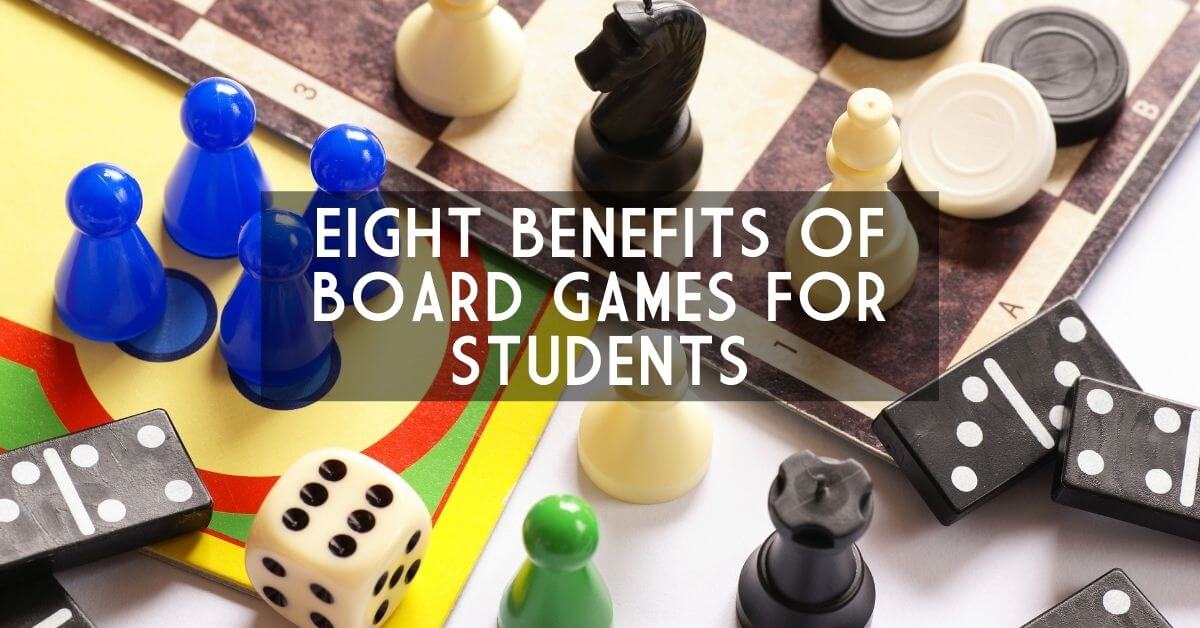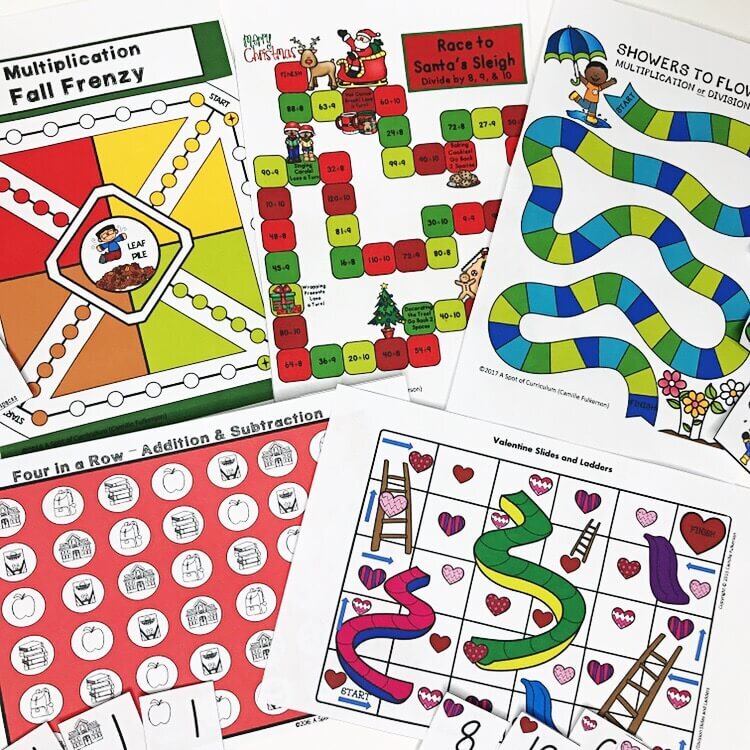
There are many benefits of board games for students. Learning is something that takes time. Some students need a little time to master content and some students need lots of time. Learning games, both board game style and card games are one way that you can meet the needs of both groups of students.
Easy to Differentiate
Many board games leave lots of room for differentiation. When students are grouped heterogeneously, games can be customized. It can be compared to giving students two different assignments, yet they are playing the same game.
For example, when students are practicing multi-digit subtraction, some students might need subtraction problems without regrouping. Other students need to practice regrouping, while still others are doing word problems with multiple steps. If everyone has the same game board, the students will all be playing the same game.
Increased Engagement
There are many more benefits of board games for students. They increase engagement in your classroom. Your students would rather read or complete math problems in a game rather than do a paper and pencil activity. Some students who are distracted during their work time will stay on task when they are playing a game. The problems might be the same that you would assign in a typical assignment but the format makes those problems more fun. Try this fun multiplication game so you can see how engaged your students are.
Provides Lots of Practice
During professional development this year, a speaker was talking about practice trials. The concept is repeated practice of a skill and if you can increase the number of times a skill is practiced, then you increase the likelihood that the skill will become easier for students. Games can provide these practice trials for students in a fun way. Your students will not even realize they are learning!
My Math Fact Fluency Bundle has a game where kids spin facts and then cover the product. If the student is practicing multiplying by 8, then they spin to see what number they are going to multiply 8 times. Each student has twelve products they need to answer and cover to win the game. Because the spins are random, they may get to practice a fact multiple times because that is where the spinner lands. This might give a student four practices with a fact like 8 x 4 before they cover all of their products.

Board Games Can Help Social Skills
Playing games in a pair or small group can help teach and practice social skills. This can be contrasted with a student playing a game on a computer or tablet. While the computer game will be engaging, it will not help them develop social skills. Students learn to take turns and wait when they play board or card games. They are often more successful at a game if they pay attention when it is not their turn. This can help to lengthen their attention span. Students can also learn to work as a team or with a partner when playing games also. Another social skill students practice is working out a disagreement. Sometimes teachers do not use games in the classroom because of this, but it actually gives you an opportunity to directly teach social skills.
Board Games Teach Students to Follow Instructions
There are other benefits of board games for students like when kids learn to follow directions. Whether you are explaining the instructions to a game or the students are reading the instructions, the kids must follow them in order to play the game. Often students need instruction on how to follow the rules of the game. Many students often make up their own rules for games so they might not be used to having a set of rules they have to play by. This is a life skill and it is valuable to your students.
Build Communication Skills
Games are a great way to build communication skills. Students will need to indicate that their turn is over or that it is someone else's turn. They might have to ask questions or clarify rules. Student language can also focus on working together with other peers. Teaching students structured language will help them be successful when they play a game and will help improve their informal communication too. Games are a great way to get kids talking.
Be a Good Winner and Loser
Games almost always have a winner and a loser. Kids can learn the language of how to win gracefully and how to keep their cool when they lose. Some of your students will need extra help with this. Teaching kids to win and be happy, yet not to brag or get overconfident is a helpful life skill. Conversely, teaching kids to be okay with losing and to congratulate the winner is equally beneficial.
Building Community
Another benefit of board games for students is that playing games help to build community. Games create a common goal in the classroom community. Games create a situation where face-to-face interactions happen. When this happens, kids can develop bonds and shared experiences, and this creates community.
There are even more benefits of board games for students. Games are great for teaching reading, math, or any content area. They add lots of fun to your classroom, and often, the students do not even realize they are learning!
Here are some of my favorites if you are looking for supplies to play games in your classroom. I use these colorful dice and these game tokens. I also use these blank dry erase cards to add custom content to games. Your students will learn so much from playing games in the classroom!
This site contains affiliate links. This simply means if you buy something using our link, we will receive a very small portion of the sales. The price of the item is the same whether it is an affiliate link or not. It is our promise to you that we only recommend products or services we believe will add value to our readers. By using the affiliate links, you are helping support our Website, and we genuinely appreciate your support.

